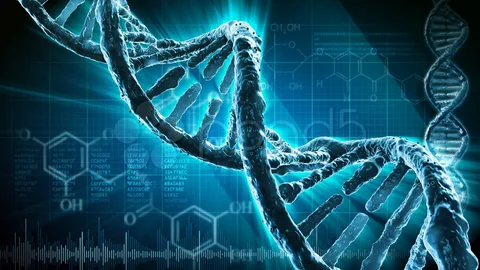In recent years, the Paleo and Vegan diets have gained immense popularity among health enthusiasts. Both diets are centered around eating whole foods, but their approaches to nutrition are vastly different. While Paleo emphasizes on high protein intake through animal products, Vegan is all about eliminating animal-based products from your diet altogether. With so many opinions out there, choosing between the two can be overwhelming. But fear not! In this article, we’ll break down the pros and cons of each diet to help you make an informed decision on which one is right for you!
What is the Paleo Diet?
The Paleo Diet, also known as the Paleolithic diet or caveman diet, is based on eating foods that our ancestors ate during the Paleolithic era. The idea behind this way of eating is that our bodies are genetically predisposed to thrive on a hunter-gatherer type of diet rather than modern processed and refined foods.
The Paleo Diet emphasizes the consumption of whole, unprocessed foods such as meat, fish, fruits, vegetables, nuts and seeds while avoiding grains, dairy products and legumes. This means no bread or pasta but plenty of animal protein like grass-fed beef and wild-caught fish.
One key principle of the Paleo Diet is to avoid all processed foods including sugar and artificial sweeteners. This is because these types of food weren’t consumed by our ancestors who lived off the land before industrialization changed everything.
Proponents argue that adopting a Paleo lifestyle can help reduce inflammation in your body which may lead to better health outcomes over time. However, critics argue that following such an extreme dietary regimen may not be necessary for optimal health.
Pros and Cons of the Paleo Diet
The Paleo diet, also known as the caveman diet or hunter-gatherer diet, is based on foods that our ancestors ate during the Paleolithic era. It emphasizes high-protein animal products and non-starchy vegetables while excluding dairy, grains, legumes and processed foods. Here are some pros and cons of this popular diet:
Pros:
– The Paleo diet encourages whole food consumption over processed options.
– Since it excludes grains and sugar-laden foods, people may experience weight loss.
– Eating a lot of protein can help with muscle growth and repair.
Cons:
– This type of eating plan can be restrictive since it eliminates certain food groups.
– It may be difficult to get enough fiber without consuming grains or legumes.
– High meat intake means higher levels of saturated fat which could lead to health problems in the long run.
The Paleo diet has its advantages for those looking for a more natural way of eating but it’s important to consider your own dietary needs before making any drastic changes.
Pros and Cons of the Vegan Diet
The vegan diet is a popular plant-based eating style that eliminates all animal products, including meat, dairy, and eggs. While it can offer numerous health benefits, there are also some potential drawbacks to consider.
One of the main advantages of a vegan diet is its high nutrient density. Fruits, vegetables, beans, and whole grains contain essential vitamins and minerals that support overall health. Additionally, many vegans report feeling more energized and experiencing better digestion.
However, one potential downside to a vegan diet is the risk of nutrient deficiencies. Without careful planning and supplementation, it can be challenging to get enough protein, calcium or vitamin B12 from plant sources alone.
Another concern with the vegan diet is its limited food options in certain social settings or when traveling. Dining out may require more research into restaurants with vegetarian options or asking for menu modifications.
Despite these considerations, many people find success with a well-planned vegan lifestyle. By focusing on variety in their meals and carefully monitoring their nutrition intake through supplements if needed they benefit both their personal health as well as our planet’s sustainability efforts!
Which Diet is Right for You?
Choosing the right diet for you can be a tough decision. It ultimately comes down to personal preference and lifestyle goals. If your priority is weight loss, then the Paleo diet may be a better option since it focuses on high protein and low carbohydrate intake.
On the other hand, if ethical concerns or environmental impact are important factors for you, then following a vegan diet would align more with your values. A plant-based diet has been linked to numerous health benefits such as reducing the risk of heart disease and certain cancers.
It’s also worth considering that some people may not thrive on either one of these diets due to individual dietary needs or restrictions. For example, those who suffer from lactose intolerance or gluten sensitivities may struggle with aspects of both diets.
Ultimately, there is no one-size-fits-all approach when it comes to choosing between Paleo vs Vegan diets. It’s essential to consult with a registered dietician or healthcare provider before making any significant changes in your eating habits. They can provide personalized recommendations based on your specific needs and help guide you towards making healthy choices that work best for you!
Conclusion
After exploring the pros and cons of both the Paleo and Vegan diets, it is clear that each diet has its own unique benefits. The Paleo diet offers a high protein and low-carb option for those looking to lose weight or build muscle. On the other hand, the Vegan diet provides a plant-based alternative that can benefit overall health by reducing inflammation in the body.
When deciding which diet is right for you, consider your personal goals and values. If you prioritize animal welfare, environmental sustainability or prefer a more natural approach to eating, then veganism may be a better fit for you. However, if you aim to improve athletic performance or follow a low carb lifestyle, then Paleo might work best.
Ultimately though, no matter what dietary path we choose to follow; it’s crucial always to listen carefully to our bodies’ needs while ensuring that we consume nutrient-dense foods rich in healthy fats and proteins.
In conclusion (just kidding), whether you adopt a paleo or vegan way of life – remember: balance is key!









